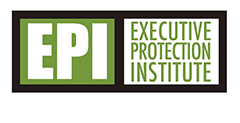We do like comfort, don’t we? Often, also, we like routine. I feel that on a very deep level, as I am one of the guiltiest of that comfort seeking. But what I can say is that when I stepped out of that comfort zone and started conversations with people, I did not know that well, or even at all, that’s when things got interesting.
Continue reading “Networking in Other Circles”How to Improve Your Working Memory for Better Cognitive Functioning as Executive Protection
By: Luiz G. Neto
Our brain is constantly processing information. From making our coffee in the morning to dreaming while we sleep, our neurons are always working to figure out what to do with the information they’re receiving. Every scenario is carefully calculated within our brains which then tells us how to respond to certain stimuli. In the field of Close Protection, it’s crucial that we train our brains to respond to stimuli in a quick and calculated way so that we are able to execute our responsibilities and keep people safe.
Continue reading “How to Improve Your Working Memory for Better Cognitive Functioning as Executive Protection”Digital Citizenship

We have officially reached a point in history where we have an entire generation of people who have grown up using digital media. From their first moments of life, they have been introduced to technology, that provides them access and connectivity to the entire world. We see little ones in strollers playing with cell phones and iPad’s before they can even walk and talk. This new generation is already consuming and creating content at astronomical rates. However, it is important to note, and studies have shown that digital media consumption is addicting, both physically and psychologically. Participating in social media produces the same neurological response as using an addictive substance. Specifically, when a person receives a notification that a post has received attention, such as a ‘like’ or a ‘mention’, the brain naturally receives a rush of dopamine causing the person pleasure and a sense of satisfaction. This exact same response can be compared to individuals using addictive drugs (Hilliard, 2019).
Continue reading “Digital Citizenship”Testimonial
I want to take this opportunity to provide you with a few comments and to say thank you for the extraordinary Executive Protection Institute (EPI) course experiences I had a few weeks ago. As you’ll note, I give high praise to your courses and people, not because I think it’s what you all want to hear, rather it’s because you and your program have earned and deserve every word of praise given, and probably more.
The exceptional instruction I (we) received, the caliber of students that your program attracts, the type of people I met who work in the field (instructors and students), the feel I got for what it would be like to work in the field of protection, and the incredible network that I feel I now have access to, just by having completed your Providing Executive Protection Program, has not only instilled excitement within me, it has inspired me to learn as much as I can, as well as pursue working in this field,… after having worked as an engineer/investigator for the past 15+ years.
I attended your Providing Executive Protection, followed by Protection Response Tactics, and then the Protector’s Pistol Course. Each course was exceptionally well planned and taught, and provided me, as well as my classmates with an extraordinary learning experience. Your teaching (facilitation) philosophy coupled with your very diverse and highly experienced security operators who taught the course modules, as well as my fellow students, are what made my learning experience extraordinary. I came into your courses with no protection experience, but with a number of years of teaching experience (physical techniques to groups of 6 to 100, and undergraduate and graduate level engineering courses), and without a doubt I can say that you guys rock!
The evolution, distillation, and streamlining of the material and how it is presented, the course planning and logistics of actually putting on the courses, and acquiring the very talented and approachable instructional and administrative staff, all of whom have gone through the 7-day PEP course (I really like that) no doubt have required significant effort and time, both of which are apparent and are hugely appreciated!
Thank you all for what you have put into your program, which truly is exceptional.

